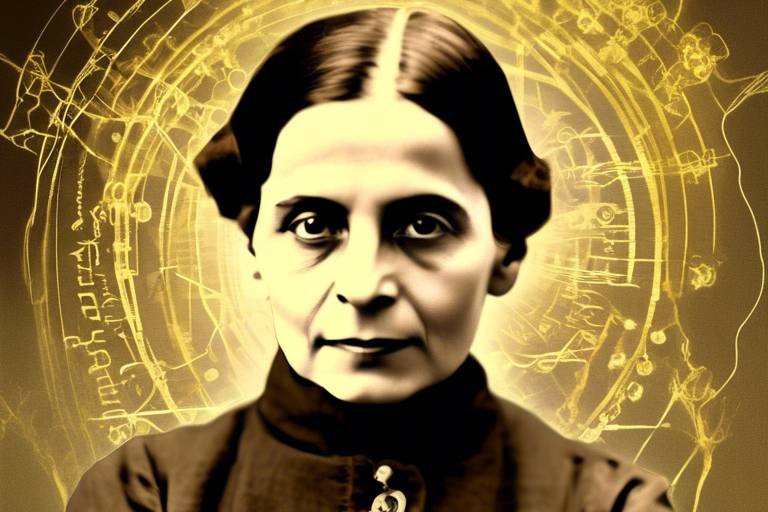Cavendish: The Pioneer in Chemistry
Henry Cavendish, a name that resonates through the annals of scientific history as a pioneer in the realm of chemistry. His remarkable contributions have left an indelible mark on the scientific community, shaping the very foundation of modern chemistry. Cavendish's insatiable curiosity and unwavering dedication to precision have set him apart as a true trailblazer in the field.

Early Life and Education
Henry Cavendish, the pioneer in chemistry, had a fascinating early life and educational journey that laid the groundwork for his remarkable scientific career. Born in 1731 in Nice, France, Cavendish was the son of Lord Charles Cavendish and Lady Anne Grey, belonging to a wealthy and influential family. Despite his privileged background, Cavendish led a reclusive life, preferring solitude and dedicating himself to intellectual pursuits.
During his formative years, Cavendish received a comprehensive education, studying at a variety of prestigious institutions in England and Europe. He showed a keen interest in natural philosophy and mathematics, immersing himself in the works of prominent scientists and thinkers of his time. Cavendish's insatiable curiosity and analytical mind set him apart from his peers, foreshadowing his future contributions to the field of chemistry.
One notable aspect of Cavendish's early education was his exposure to the latest scientific advancements and experimental techniques. He honed his skills in observation and critical thinking, preparing him for the rigorous scientific inquiries he would undertake later in life. Cavendish's thirst for knowledge and relentless pursuit of understanding the natural world drove him to push the boundaries of scientific exploration.
Despite his introverted nature, Cavendish's intellectual prowess and dedication to scientific inquiry eventually propelled him onto the world stage as a trailblazing chemist and physicist. His early life and education not only shaped his scientific pursuits but also set the stage for groundbreaking discoveries that would revolutionize the field of chemistry.

Hydrogen Discovery
Henry Cavendish's discovery of hydrogen marked a significant milestone in the history of chemistry, reshaping the understanding of elements and their properties. In his groundbreaking experiment, Cavendish combined metals with acids and observed the production of a flammable gas, which we now know as hydrogen. This discovery challenged the prevailing beliefs of the time and laid the foundation for further exploration into the nature of gases.
Through meticulous observation and precise measurements, Cavendish was able to isolate hydrogen as a distinct element, separate from other gases. His quantitative approach to scientific inquiry set a new standard for experimental rigor, emphasizing the importance of accurate data collection and analysis in advancing knowledge.
Furthermore, Cavendish's hydrogen discovery not only expanded the periodic table but also opened doors to new avenues of research in chemistry. By identifying hydrogen as a fundamental building block of matter, Cavendish's work paved the way for future scientists to explore the reactivity and properties of this versatile element.

Quantitative Approach to Science
Henry Cavendish was known for his , which set him apart as a meticulous experimenter. His dedication to precise measurements and detailed observations laid the groundwork for modern scientific methodology. Cavendish's emphasis on accuracy and reproducibility in his experiments elevated the standards of scientific research during his time.

Earth's Density Experiment
Henry Cavendish's Earth's Density Experiment was a groundbreaking scientific endeavor that showcased his innovative approach to research. In this experiment, Cavendish sought to determine the density of the Earth, a task that required meticulous planning and precise measurements. Using a torsion balance, Cavendish was able to measure the gravitational attraction between lead spheres with extraordinary accuracy. By analyzing the deflection of the torsion balance, Cavendish was able to calculate the density of the Earth, contributing significantly to our understanding of the planet's composition.

Gravitational Constant
The is a fundamental constant in physics that plays a crucial role in determining the strength of the gravitational force between objects. Henry Cavendish's groundbreaking work in measuring this constant provided valuable insights into the nature of gravity and its effects on celestial bodies. By conducting meticulous experiments using a torsion balance, Cavendish was able to calculate the gravitational constant with remarkable precision, laying the foundation for our understanding of gravity as a universal force.
Through his innovative approach to quantifying the gravitational interaction between masses, Cavendish demonstrated the power of precise measurement and careful analysis in scientific inquiry. The gravitational constant, denoted by the symbol G, represents the strength of the gravitational force in the universal law of gravitation formulated by Sir Isaac Newton. Cavendish's work not only confirmed Newton's theories but also expanded our knowledge of the fundamental forces that govern the dynamics of the cosmos.
By determining the gravitational constant, Cavendish contributed significantly to the fields of physics and astronomy, enabling future generations of scientists to make accurate predictions about the motion of planets, stars, and galaxies. His legacy as a pioneer in experimental physics continues to inspire researchers to explore the mysteries of the universe through empirical observation and quantitative analysis.

Legacy and Influence
Henry Cavendish's legacy in the fields of chemistry and physics is profound, leaving a lasting influence on scientific inquiry. His meticulous approach to experimentation and analysis set a high standard for future researchers, emphasizing the importance of precision and accuracy in scientific investigations. Cavendish's contributions to the understanding of fundamental forces, such as his work on measuring the gravitational constant, have provided invaluable insights into the workings of the universe.
Furthermore, Cavendish's emphasis on quantitative analysis and rigorous methodology continues to shape the scientific method used in research today. His dedication to empirical evidence and systematic observation laid the groundwork for modern scientific practices, inspiring generations of scientists to follow in his footsteps. The impact of Cavendish's work extends beyond his time, with his experiments and discoveries serving as cornerstones of scientific knowledge.
In recognizing Cavendish's historical significance, we acknowledge his pioneering spirit and unwavering commitment to advancing human understanding. His legacy serves as a testament to the power of curiosity and the pursuit of knowledge, reminding us of the transformative potential of scientific exploration. As we reflect on Cavendish's life and contributions, we honor his enduring influence on the scientific community and celebrate his role as a true pioneer in chemistry.

Scientific Methodology
Henry Cavendish's approach to scientific inquiry was characterized by a rigorous and meticulous methodology that set the standard for experimental precision. His dedication to accurate measurement and quantitative analysis distinguishes his work and continues to influence scientific practices today. Cavendish's commitment to detail was evident in his experiments, where he meticulously recorded data and calculated results with unprecedented accuracy. By adhering to strict protocols and maintaining a high level of precision, Cavendish ensured the reliability and reproducibility of his findings.

Historical Significance
Henry Cavendish holds immense historical significance in the realm of science, particularly in the field of chemistry. His pioneering spirit and dedication to precise experimentation have left an indelible mark on the scientific community. Cavendish's meticulous approach to research set a standard for future generations of scientists, emphasizing the importance of accuracy and thorough analysis.
One of Cavendish's most notable contributions was his determination of the gravitational constant, a fundamental value in physics that governs the force of gravity between objects. This groundbreaking work not only advanced our understanding of the universe but also paved the way for further exploration into the laws of nature.
Moreover, Cavendish's discovery of hydrogen as a distinct element revolutionized the field of chemistry, challenging existing beliefs and opening up new avenues of inquiry. His quantitative approach to science, characterized by precise measurements and rigorous experimentation, set him apart as a true pioneer in the field.
Throughout history, Cavendish has been revered for his unwavering commitment to scientific inquiry and his relentless pursuit of knowledge. His legacy continues to inspire curiosity and innovation, reminding us of the transformative power of scientific discovery.
Frequently Asked Questions
- What were Henry Cavendish's major contributions to chemistry?
Henry Cavendish made significant contributions to chemistry, including the discovery of hydrogen as a distinct element and the precise measurement of Earth's density. His work laid the foundation for modern quantitative analysis in scientific research.
- How did Cavendish's experiments on Earth's density impact scientific understanding?
Cavendish's groundbreaking experiment to determine Earth's density provided crucial insights into the composition of our planet and advanced scientific knowledge of gravitational forces. His work contributed to the development of modern physics.
- What was Cavendish's approach to scientific methodology?
Cavendish was known for his meticulous and precise methods in conducting experiments, setting a high standard for quantitative analysis in scientific research. His rigorous approach continues to influence the scientific method used today.
- What is Henry Cavendish's legacy in the field of chemistry and physics?
Cavendish's legacy in chemistry and physics is profound, with his work on hydrogen, Earth's density, and the gravitational constant shaping scientific inquiry for generations. He is recognized for his pioneering spirit and enduring influence on the scientific community.



















